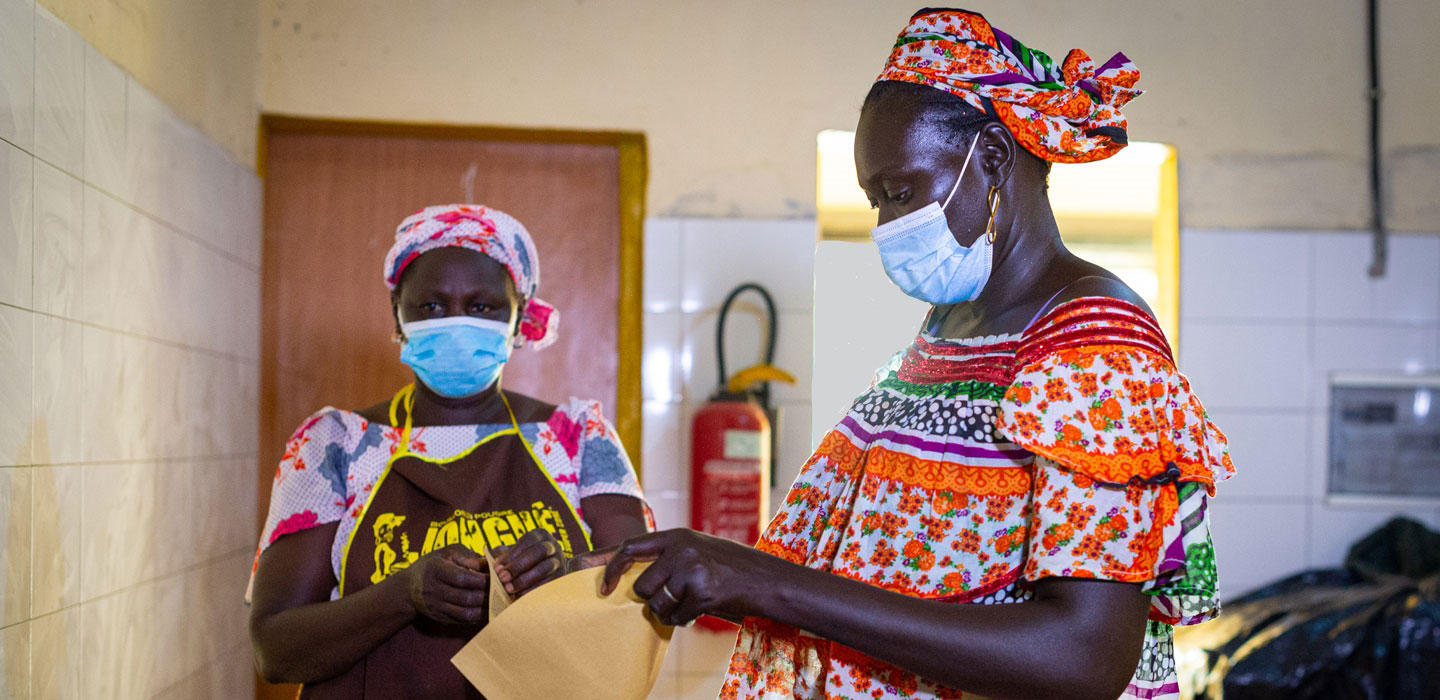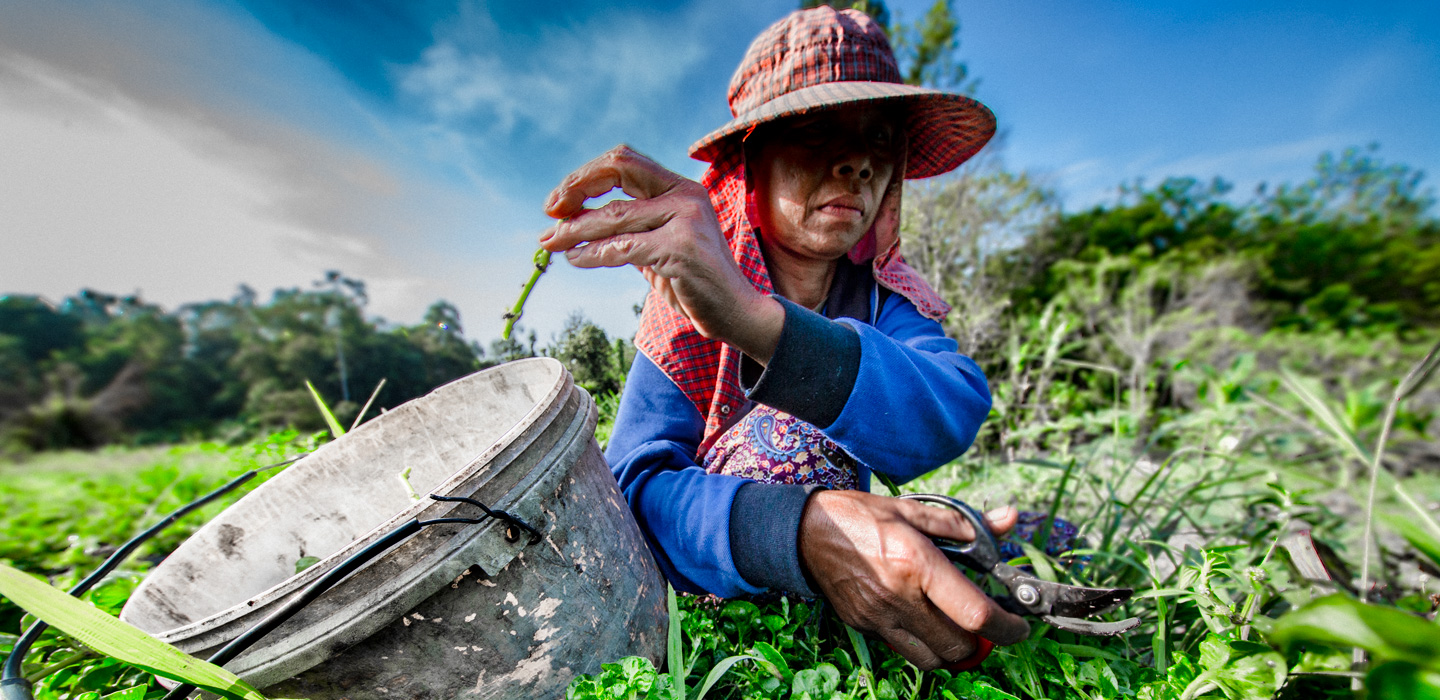Covid-19

COVID-19
COVID-19
COVID-19 is the infectious disease caused by SARS-CoV-2, the most recently discovered coronavirus. The outbreak that began in Wuhan, China, in late 2019, has rapidly spread across the world, profoundly disrupting fundamental activities we all depend on, including agriculture and food systems – and endangering all those who depend on it as their livelihood.
The coronavirus pandemic is a global emergency affecting all countries, requiring immediate and sustained international action. While mitigating the terrible human and economic toll worldwide is rightly uppermost in our minds, we are also gravely concerned about the underlying problems this emergency exposes, especially for those most at risk for severe consequences – older people, poor households, the undernourished, and those who live in remote rural areas without access to services or help. These problems heighten the risks of the current pandemic and must not be neglected.
Some 736 million people currently live in extreme poverty, which is a root cause of many global problems, from ill health to social unrest to migration. Meanwhile, hunger was already on the rise for several years before the pandemic, devastating the lives of up to 828 million people, not only robbing them of a future but weakening their immunity and health – a more dangerous combination than ever in the present crisis. Food insecurity and poverty are most severe among rural marginalized groups, including women and youth.
There are worrying reports of COVID-19 taking hold among rural populations, where poverty, undernourishment and lack of access to essential healthcare make the population especially vulnerable Given that we focus on the poorest of the poor, we fear that the impact of COVID-19 on our beneficiary groups is likely to be especially pronounced.
Short-term crises can feed off long-term problems, gaps, underinvestment and vulnerabilities.
The spread of illness can devastate poor rural communities and small-scale food producers who already face challenges such as weak resilience, poor nutrition and limited access to resources and services. Many countries depend on these communities for their national food security. Nevertheless, the pandemic and related disruptions of trade, travel and markets could reduce food production and availability.
We have received multiple reports of supply chain interruptions affecting agricultural production in some of our beneficiary countries. At the same time, small-scale farmers, with the support of IFAD and governments, are proving key actors to guarantee access to food for local populations amid the disruptions food systems are suffering. More broadly, the crisis is expected to have profound effects on the global economy, which will certainly affect small-scale rural producers on a much broader scale.
Mitigating the effects of the outbreak involves delivering support directly to the populations who need it most.
Around 63 per cent of the world’s poorest people work in agriculture, the overwhelming majority on small farms. Most of the poorest, hungriest and most marginalized people live in rural areas, and that is where the development community now needs to focus its mid- to long-term efforts.
Key messages
- COVID-19 is a global pandemic that is having tangible effects on the agriculture sector.
- In addition to its potential health effects, COVID-19 threatens to profoundly affect the livelihoods of poor rural farmers who depend on agriculture.
- Given that we focus on the poorest of the poor, we fear that the impact of COVID-19 on our beneficiary groups is likely to be especially pronounced.
- Investments in rural agricultural programmes can help people become more self-reliant, mitigate the impact of severe events, increase rural prosperity, ensure more sustainable food systems and food security, and create greater resilience in fragile states.
- Economic growth in agriculture is two to three times more effective at reducing poverty and food insecurity than growth in other sectors. Investments in small-scale agriculture can help revive food production and create jobs following a crisis and enable rural communities to recover.
For the latest information on novel coronavirus disease (COVID-19), please refer to the World Health Organization.
In depth
In depth
IFAD’s Rural Poor Stimulus Facility
Given the magnitude of the challenge presented by this crisis, IFAD has launched a multi-donor COVID-19 Rural Poor Stimulus Facility (RPSF) to improve the resilience of rural livelihoods by ensuring timely access to inputs, information, markets and liquidity.
Stories and news
Stories and news
Investing in a better future: A new day dawns, and we have reasons for hope
When climate and natural disasters strike, it’s rural people who are worst affected. Investing in their resilience ensures that they not only endure times of crisis, but emerge stronger. Associate Vice-President of Programmes Donal Brown explains how rural communities can change the world for the better.
Sénégal : Le FIDA et le CNCR signent un accord de don pour l’amélioration des revenus des femmes et des jeunes entrepreneurs avicoles villageois
Le FIDA et le Conseil national de concertation et de coopération des ruraux (CNCR) du Sénégal, viennent de signer un Accord de don pour améliorer les revenus des femmes et des jeunes entrepreneurs avicoles villageois ayant subi les conséquences des mesures restrictives prises pour faire face à la pandémie de Covid19.
How smallholder farmers in Madagascar, Burkina Faso and Eswatini endured the coronavirus pandemic
When covid-19 brought the world to a standstill, IFAD helped farmers’ organizations adopt new ways of operating amid a global pandemic.
2022: Resilience in the face of adversity
As we near the end of 2022, IFAD looks back on some of the themes that defined a year of dramatic change.
Rural people in crisis: The latest news from IFAD
Rural people are still paying the highest price for the rise in food, fertilizer and fuel costs. The Crisis Response Initiative was set up as part of IFAD's ongoing efforts to build rural people's resilience to these shocks. Here are selected highlights on the crisis from our teams in the field.
COVID 19 View more link
Related Publications
Related Publications
PIRAS Country Update: Samoa
PIRAS supports COVID-19 food system and economic recovery. In it, PIRAS supports food production, post-harvest handling and market access.
PIRAS Country Update: Kiribati
PIRAS supports COVID-19 food system and economic recovery. In Kiribati, PIRAS tackles water scarcity and food security for vulnerable rural farming households.
PIRAS Country Update: Fiji
PIRAS supports COVID-19 food system and economic recovery. In Fiji, it works in 70 villages and supports food production, post-harvest handling and market access.
